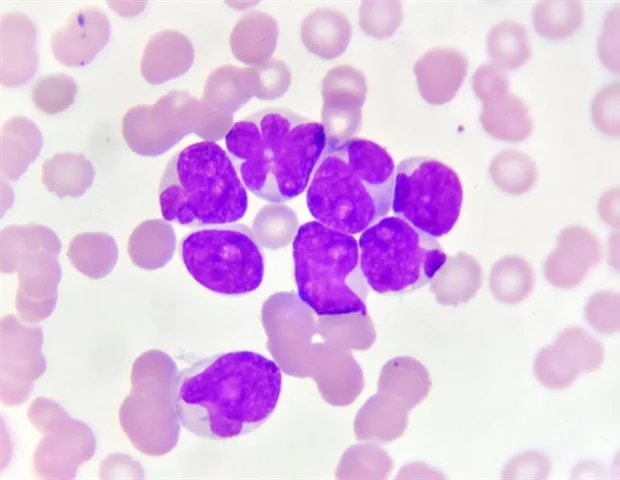Eating Dark Chocolate May Help Lower Your Risk of Type 2 Diabetes: A Detailed Analysis
Dark chocolate, often celebrated as a delectable indulgence, has also gained recognition for its potential health benefits. Recent studies suggest that consuming dark chocolate in moderation may help lower the risk of type 2 diabetes, a condition characterized by insulin resistance and elevated blood sugar levels. This revelation has ignited significant interest in the medical and nutritional communities, as diabetes remains a growing global health concern. In this detailed discussion, we’ll explore the scientific mechanisms, potential benefits, and practical considerations surrounding dark chocolate and its relationship to type 2 diabetes prevention.
Understanding Type 2 Diabetes
Type 2 diabetes is a chronic condition that affects how the body metabolizes glucose. It occurs when the body becomes resistant to insulin, the hormone that regulates blood sugar, or when the pancreas fails to produce enough insulin. Factors such as genetics, obesity, physical inactivity, and poor dietary habits contribute to the development of this disease. If left unmanaged, type 2 diabetes can lead to severe complications, including cardiovascular disease, kidney damage, and nerve issues.
Given the global rise in type 2 diabetes, researchers and healthcare professionals are increasingly exploring dietary and lifestyle interventions to prevent or manage the condition.
The Nutritional Profile of Dark Chocolate
Dark chocolate is rich in nutrients that may contribute to improved health outcomes. Unlike milk chocolate, which contains high amounts of sugar and fat, dark chocolate typically has a higher cocoa content and fewer added sugars. Key components of dark chocolate include:
- Flavanols: Dark chocolate is an abundant source of flavanols, a type of antioxidant found in cocoa. Flavanols have been linked to improved vascular health, reduced inflammation, and enhanced insulin sensitivity.
- Magnesium: This mineral, present in dark chocolate, plays a role in glucose metabolism and insulin function.
- Theobromine: A compound similar to caffeine, theobromine may enhance energy levels and promote metabolic health.
- Low Glycemic Index: Dark chocolate has a lower glycemic index compared to sugary confections, meaning it causes a slower rise in blood sugar levels.
These components make dark chocolate a potential candidate for improving metabolic health and reducing the risk of diabetes.
How Dark Chocolate May Reduce Diabetes Risk
Several mechanisms explain how dark chocolate may contribute to a reduced risk of type 2 diabetes:
- Improved Insulin Sensitivity: Flavanols in dark chocolate have been shown to enhance insulin sensitivity, making the body more efficient at using insulin to regulate blood sugar levels. Improved insulin sensitivity can delay or prevent the onset of type 2 diabetes.
- Reduction in Inflammation: Chronic low-grade inflammation is a key factor in the development of insulin resistance. The antioxidants in dark chocolate combat inflammation by neutralizing harmful free radicals in the body.
- Enhanced Endothelial Function: The endothelium, the inner lining of blood vessels, plays a critical role in vascular health. Flavanols improve endothelial function, which may help reduce the risk of cardiovascular complications associated with diabetes.
- Improved Glucose Metabolism: The magnesium content in dark chocolate supports the body’s ability to metabolize glucose effectively, potentially reducing fasting blood sugar levels.
- Reduction in Cravings: Dark chocolate’s rich flavor and satisfying texture may help curb cravings for unhealthy, high-sugar snacks, thereby promoting better dietary habits.
Scientific Studies Supporting the Benefits
Several research studies have investigated the link between dark chocolate consumption and diabetes prevention:
- Long-Term Observational Studies: Population-based studies have found that individuals who consume moderate amounts of dark chocolate are less likely to develop type 2 diabetes compared to those who avoid it entirely.
- Clinical Trials: Controlled studies have demonstrated that participants who consumed flavanol-rich cocoa experienced improved insulin sensitivity and reduced markers of inflammation.
- Meta-Analyses: Reviews of multiple studies have concluded that moderate consumption of dark chocolate may support metabolic health, although further research is needed to establish causation definitively.
These findings collectively suggest that dark chocolate can be a beneficial addition to a balanced diet for individuals at risk of type 2 diabetes.
Practical Guidelines for Consumption
While dark chocolate offers potential health benefits, it’s essential to consume it responsibly to avoid overindulgence and counterproductive effects. Here are some practical tips:
- Choose High-Quality Dark Chocolate: Opt for dark chocolate with a cocoa content of 70% or higher, as it contains more flavanols and less added sugar.
- Mind Portion Sizes: A small portion (around 20-30 grams) of dark chocolate a few times a week can be sufficient to reap the benefits without excessive calorie intake.
- Avoid Sugary Additions: Steer clear of dark chocolate products with caramel, nougat, or other high-sugar fillings.
- Incorporate Into a Balanced Diet: Pair dark chocolate with other nutrient-rich foods like fruits, nuts, and whole grains to maximize health benefits.
- Consult a Healthcare Provider: Individuals with existing health conditions, such as diabetes or heart disease, should consult a healthcare professional before making dietary changes.
Potential Limitations and Risks
While dark chocolate shows promise in reducing diabetes risk, there are some caveats to consider:
- Caloric Density: Dark chocolate is calorie-dense, and overconsumption can lead to weight gain, which is a risk factor for type 2 diabetes.
- Variability in Cocoa Content: Not all dark chocolate products are created equal; some may contain added sugars and fats that diminish their health benefits.
- Individual Variability: The benefits of dark chocolate may vary depending on an individual’s overall diet, genetic predisposition, and lifestyle factors.
Moderation and mindfulness are key to enjoying the potential benefits without negative consequences.
Dark Chocolate as Part of a Diabetes Prevention Strategy
Incorporating dark chocolate into a diabetes prevention strategy should complement other healthy lifestyle choices, including:
- Regular Physical Activity: Exercise improves insulin sensitivity and helps maintain a healthy weight.
- Balanced Diet: A diet rich in vegetables, fruits, whole grains, lean proteins, and healthy fats supports metabolic health.
- Stress Management: Chronic stress can affect blood sugar regulation; mindfulness practices and relaxation techniques can help.
- Adequate Sleep: Poor sleep is linked to insulin resistance, making quality rest an essential component of diabetes prevention.
Dark chocolate can be a small but meaningful part of a holistic approach to reducing diabetes risk.
Broader Implications for Public Health
The potential benefits of dark chocolate extend beyond diabetes prevention. Its cardiovascular benefits, mood-enhancing properties, and antioxidant effects make it a valuable food in promoting overall health. Public health initiatives could emphasize the inclusion of nutrient-dense foods like dark chocolate as part of broader dietary guidelines.
However, accessibility and affordability remain challenges. High-quality dark chocolate can be expensive, limiting its availability to certain populations. Addressing these barriers will be essential for ensuring that the benefits of dark chocolate are accessible to all.
Conclusion
The growing body of evidence linking dark chocolate to a reduced risk of type 2 diabetes is both intriguing and promising. With its rich nutrient profile and potential health benefits, dark chocolate offers a unique combination of indulgence and wellness. However, as with any dietary intervention, moderation and balance are essential.
As researchers continue to uncover the mechanisms behind dark chocolate’s effects on metabolic health, its role in diabetes prevention may become even clearer. For now, incorporating small amounts of high-quality dark chocolate into a balanced diet may be a delicious and practical step toward better health.














